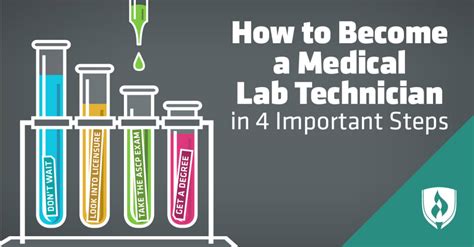In recent years, the medical technology industry has experienced significant growth, driven by advances in technology and an aging population. As a result, the demand for skilled med-tech professionals has increased, making it an attractive career path for those interested in healthcare and technology. In this article, we will outline the 7 steps to become a med-tech professional.
Step 1: Earn a Bachelor's Degree in a Relevant Field

The first step to becoming a med-tech professional is to earn a bachelor's degree in a relevant field such as biomedical engineering, computer science, or a related field. A strong foundation in mathematics and science is essential for a career in med-tech. Coursework should include classes in biology, chemistry, physics, and mathematics.
Key Skills to Develop in College
- Programming skills in languages such as Python, Java, or C++
- Knowledge of data structures and algorithms
- Familiarity with medical imaging and signal processing
- Understanding of human anatomy and physiology
Step 2: Gain Practical Experience through Internships

Internships provide valuable hands-on experience and exposure to the med-tech industry. Many companies offer internships to students and recent graduates, which can lead to full-time job offers. Internships can also help build a professional network and provide opportunities to work on real-world projects.
Types of Internships to Consider
- Research internships in academic or industry settings
- Clinical internships in hospitals or medical device companies
- Software development internships in med-tech companies
Step 3: Develop a Strong Understanding of Medical Devices and Technology

Med-tech professionals need to have a deep understanding of medical devices and technology. This includes knowledge of medical imaging modalities, diagnostic equipment, and therapeutic devices. Staying up-to-date with the latest advancements in med-tech is crucial for success in the field.
Key Areas to Focus On
- Medical imaging technologies such as MRI, CT, and ultrasound
- Diagnostic equipment such as ECG and EEG machines
- Therapeutic devices such as pacemakers and insulin pumps
Step 4: Consider Pursuing a Graduate Degree

A graduate degree can provide advanced knowledge and skills in med-tech, making candidates more competitive in the job market. A master's or Ph.D. in biomedical engineering, computer science, or a related field can lead to career advancement and higher salary potential.
Types of Graduate Degrees to Consider
- Master's in biomedical engineering
- Master's in computer science with a focus on med-tech
- Ph.D. in biomedical engineering or a related field
Step 5: Obtain Relevant Certifications and Licenses

Certifications and licenses can demonstrate expertise and commitment to the field. For example, the Certified Biomedical Equipment Technician (CBET) certification is offered by the Association for the Advancement of Medical Instrumentation (AAMI).
Types of Certifications to Consider
- Certified Biomedical Equipment Technician (CBET)
- Certified Clinical Engineer (CCE)
- Certified Medical Physicist (CMP)
Step 6: Build a Strong Professional Network

A strong professional network can provide job opportunities, mentorship, and access to industry events. Attend conferences, join professional organizations, and participate in online forums to build relationships with other med-tech professionals.
Types of Professional Organizations to Join
- Association for the Advancement of Medical Instrumentation (AAMI)
- International Society for Medical Innovation (ISMI)
- Medical Device Manufacturers Association (MDMA)
Step 7: Stay Up-to-Date with Industry Developments

The med-tech industry is rapidly evolving, with new technologies and innovations emerging regularly. Staying current with industry developments is crucial for success in the field. This can be achieved through attending conferences, reading industry publications, and participating in online forums.
Types of Industry Publications to Follow
- Medical Device and Diagnostic Industry (MDDI)
- Medical Imaging Technology
- Healthcare Technology Management






What is the average salary for a med-tech professional?
+The average salary for a med-tech professional can range from $60,000 to over $100,000 depending on the specific job title, industry, and location.
What are the most in-demand med-tech jobs?
+The most in-demand med-tech jobs include biomedical engineers, clinical engineers, and medical device sales representatives.
How do I stay current with industry developments in med-tech?
+Attending conferences, reading industry publications, and participating in online forums are all great ways to stay current with industry developments in med-tech.
In conclusion, becoming a med-tech professional requires a combination of education, practical experience, and industry knowledge. By following these 7 steps, individuals can set themselves up for success in this exciting and rapidly evolving field.
